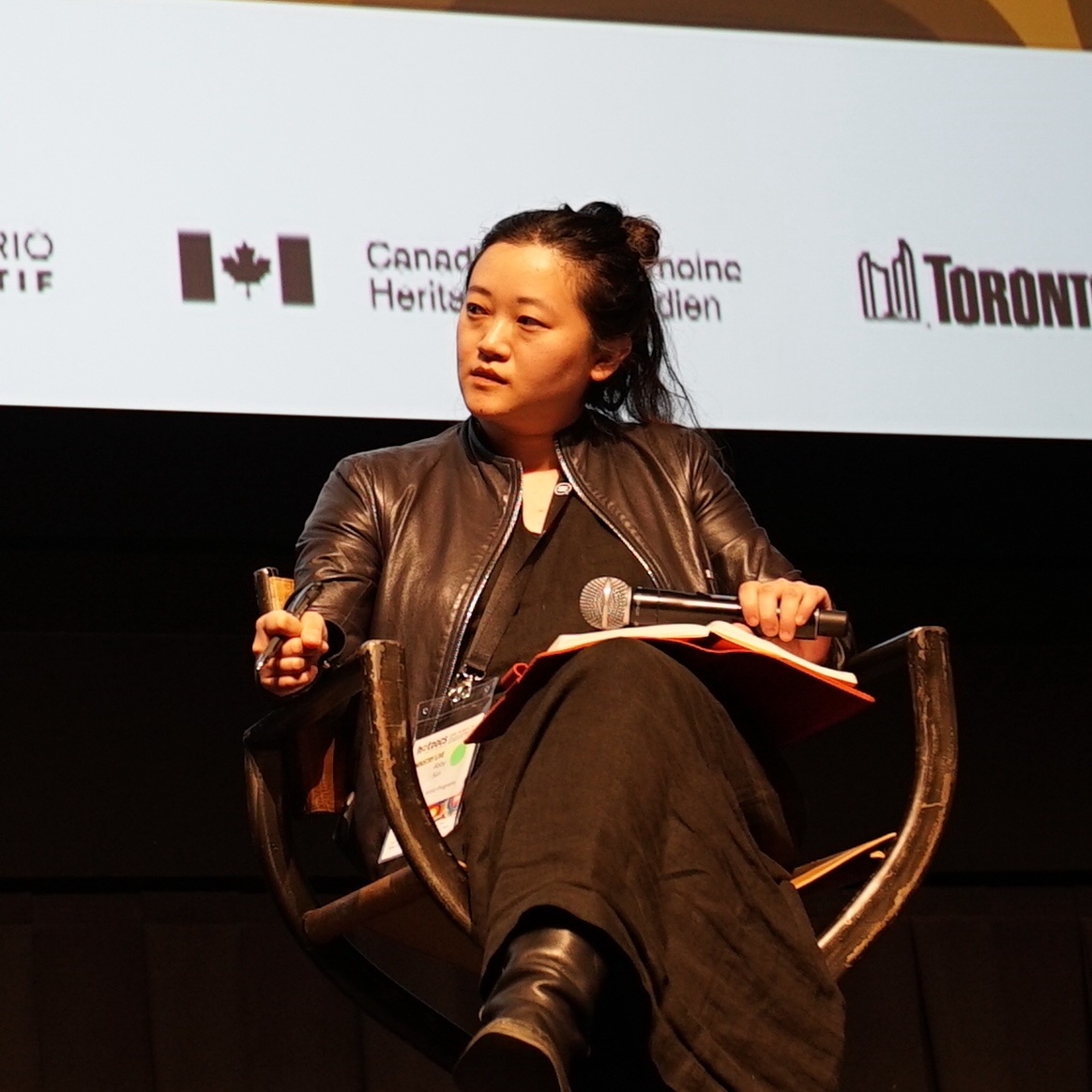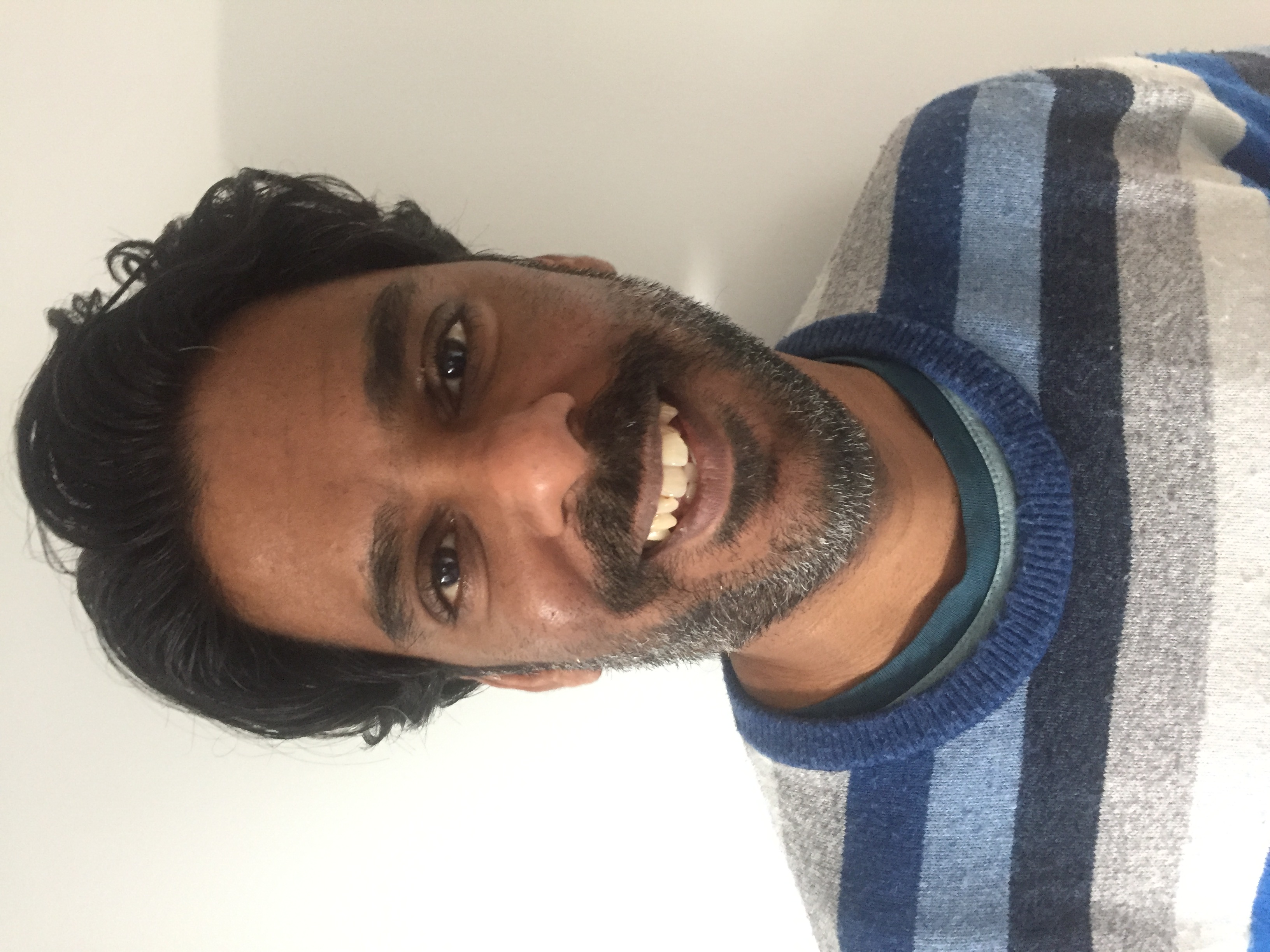 This year marks the fifth edition of Getting Real, IDA’s biennial conference, where documentary filmmakers and industry professionals will meet and dialogue in a hybrid gathering curated and programmed by Abby Sun, Conference Director and IDA’s Director of Artist Programs, as well as programmers Chris Boeckmann and Jonathan Ali. Through a digital platform, Getting Real ‘22 will enable a global audience to connect to the in-person Los Angeles gathering. The theme of this year’s conference, Flipping the Frame, reconsiders the traditional power dynamics in the documentary space. According to the Getting Real website, the intention is “to seek visionary solutions to age-old problems of documentary creation and circulation.” The programming team has designated the three main areas of focus: Community, Imagination, and Reverberations.
This year marks the fifth edition of Getting Real, IDA’s biennial conference, where documentary filmmakers and industry professionals will meet and dialogue in a hybrid gathering curated and programmed by Abby Sun, Conference Director and IDA’s Director of Artist Programs, as well as programmers Chris Boeckmann and Jonathan Ali. Through a digital platform, Getting Real ‘22 will enable a global audience to connect to the in-person Los Angeles gathering. The theme of this year’s conference, Flipping the Frame, reconsiders the traditional power dynamics in the documentary space. According to the Getting Real website, the intention is “to seek visionary solutions to age-old problems of documentary creation and circulation.” The programming team has designated the three main areas of focus: Community, Imagination, and Reverberations.
Documentary caught up with the programmers three months before the conference, at a pivotal moment in their planning process when they were, according to Boeckmann, “still assembling the ingredients before putting them in the oven.” The theme and foci are informed by their personal experiences in the field and emerged out of a carefully designed and thoughtful research process that began in late April.

The world we live in now is completely different from the world of 2020 when IDA last presented Getting Real. Every day we wake up to a new reality that inevitably changes how we make and watch documentaries. “It is clear that there has been a big shift in how people think about the documentary ecosystem,” says Sun. “It's clear that things need to change, and there are many places that are starting to build on, in many cases, decades of conversations about how things need to change.” The programming team sees the conference as a chance to bring people together in a space that allows multiple documentary ecosystems to openly discuss the pressing issues of our field, to cross and push boundaries, demystify success, and transform our field for the better.
Truly honoring their decision to focus on community, their gaze is not centered on attracting “big name” attendees, but rather on designing and creating an event informed by the people who will attend, trying to suit everybody’s needs and making them feel truly welcome in an accessible and equitable space. This, the team believes, will allow the attendees to have very difficult, but necessary conversations; connect and learn from each other, learn about community initiatives that have contributed so much to the field; and imagine new approaches to documentary language, production, and exhibition. At the same time, the team recognizes the limitations and the structures inherent in the process. “We are trying not to be comprehensive and cover everything,” Sun explains. “This is a problem with Americans who, often when they attempt to do something locally, think that they can cover everything. The urge to try and cover everything and represent everyone is in my opinion a colonial urge; it is the urge to catalog and have a complete understanding of the world. We are OK knowing that there are things that we don’t know. We are trying to serve many different audiences, but I don’t think it is possible to have something for everyone; we have to be very careful about who we care about.”
The team is building the conference through a research process—surveying the field, and listening thoughtfully, especially to conversations taking place outside of “legacy” institutions. The programmers began by creating a list of organizations, filmmaking collectives, and people who they thought were doing inspiring work within the field, and not doing business as usual. They also reached out to organizations that IDA and Getting Real already had relationships with, to maintain and renew those relationships, asking them whose work was inspiring them, who they were already connected with, and who they would like to be connected with. “This conference is a place where the development of thought and language that is used by the field, particularly in the US, gets created and adapted,” Sun maintains. “We are very aware of the potential impact on how we are framing this conference.” Previous editions of the conference have served as the incubator for the Asian American Documentary Network (A-Doc), FWD-Doc: Documentary Filmmakers with Disabilities, and the Documentary Producers Alliance.
Boeckmann, a curator, story consultant, and critic for such publications as Film Comment explains, “We need to start thinking on a communal level about what we owe to those around us, not just how we advance our own careers within the field.” This is something the team had in mind while selecting the various speakers, panelists, and moderators at the conference. “We are thinking very carefully about who is going to use this space to do more than promoting the organization they are associated with, whether they are willing to be candid about their numbers, and about their processes so that we can have open conversations.” Their work is also focusing on the power dynamics that the conversations in the conference will generate. Since this conversation, Anand Pathwardan, Erika Dilday, and Nanfu Wang have been named the keynote speakers of the conference.
Thinking about who is going to use the space implies thinking about what the space needs to provide so everyone can participate; it means creating adequate conditions for long-lasting connections to happen. While the virtual space was an unexpected shift for the conference’s last edition, this year the virtual component, named Virtual Together, is essential to serve a global audience. The programming team has been thinking about what it means to present a conference virtually and internationally, and not just to export conversations that are happening in the US. They plan to create an interactive asynchronous pace and space that is accessible and welcoming, using a platform with screen reader capabilities, and live card captions for every event, providing translators for panelists who would prefer to speak in a language of their choice.

“We really want to make the positionality of ourselves and the folks on the panel clear,” says Sun, while unpacking the team’s approach. “We are asking moderators and facilitators to hold space for all of these forces in the platform and to push back during times when people assume things about the way things should work or not. We want them to be able to set the stage, contextualize things, and think globally.”

The space, as envisioned, will allow imagination to flourish. Jonathan Ali, a veteran programmer at such festivals as Third Horizon and Tribeca, explains, “Imagination really is about just radical thinking, thinking about what we want to see in the documentary world in terms of new ways of thinking. And in saying that nothing is off the table in terms of what we want to think about when envisioning the future of documentary, as we would like to see it.” Ali and Boeckmann mention how exciting and surprising their research has been, how people are very interested in being part of the conversation, wanting to collaborate with others and to disabuse the idea of the “romantic starving artist, who is just clutching on to the principles and not interested in commercial success,” Ali states. “They want to have the resources to be able to make art and they don’t want to always be struggling, always be tied by the rules.”
“There’s been a renewed focus on how we make documentaries, who we make them for, how we serve the communities out of which these films come,” Ali continues. “Even if there is an individual helmer, the film doesn't just spring out of one person, documentaries come from communities.” He mentions how filmmakers across the globe, particularly from places in the Global South are now making films about themselves, for themselves; they are looking at new ways that they can embrace to tell the stories they want to tell. ”From top to bottom, all angles, we are bringing imagination to bear on the documentary world,” he adds.
The programming team is partnering with organizations and institutions to help them locate people who are willing to be transparent, as they speak their views on the present-day ecosystem. They are aiming to create and model a space where people won't be torn down for what they say, “where we can all work together, using what is being revealed.”
Boeckmann says that several organizations they have spoken to have spent a year or two working on reports that make demands of the industry, asking for changes. “I feel optimistic that that energy is going to be present in Getting Real, when people start to interact with one another,” he adds. The team is hoping that the studies that they have been learning about can find a platform during Getting Real, and reverberate through the conference, opening up doorways of access that outlive the conference. The team is still working on creating timely processes of sharing the knowledge acquired through the event.
Having this encounter, in this very specific time in history, bringing together a conscientious selection of documentary forces and voices in a carefully designed space, is incredibly exciting and remarkable. It makes us wonder what would be the outcomes of the event, and what will the reverberations of these ideas and connections look like, as they envision what Stanford University professor Fred Turner dubs the “documentary surround” in the future. “For me the really beautiful thing about Getting Real is that it is not tied to a festival market, it’s not an academic conference, there is this kind of in-between space where we have a lot more room to create the types of structures and relationships that we really want to see.” Sun maintains.
Mariana Sanson was born and raised in Mexico City and is deeply interested in women’s representation, documentary intersectionality, working towards the creation of a more equitable documentary industry, and society’s relationship with media. She worked at Ambulante from 2013-19, and now works with Chicken & Egg Pictures.
Mariana Sanson is a 2022 Documentary Magazine Editorial Fellow. The Fellowship program is supported in part by the National Endowment for the Arts and the Hollywood Foreign Press Association. To find out more about how National Endowment for the Arts grants impact individuals and communities, visit www.arts.gov.




